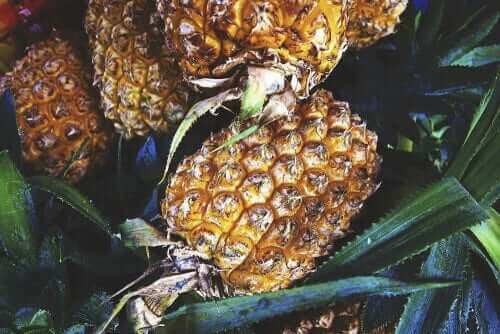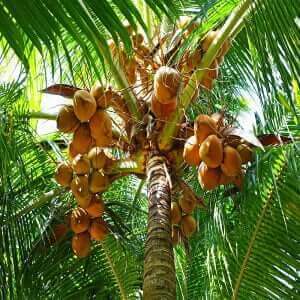The study of Central American natives and their low prevalence of heart disease has shed […]
The study of Central American natives and their low prevalence of heart disease has shed light on the potential protective role of high potassium intake in maintaining cardiovascular health. These populations, known for their minimal rates of heart disease, have long intrigued researchers.
The secret to their heart health may lie in their diet, specifically their daily intake of potassium-rich tropical fruits, which can reach as high as 20,000 milligrams. In this comprehensive examination, we will explore the diet of Central American natives, the significance of their potassium-rich food choices, and other findings contributing to their remarkable heart health.
Diet of Central American Natives
The traditional diet of Central American natives is characterized by a variety of foods that contribute to their overall health and well-being, with a particular emphasis on potassium-rich tropical fruits. Some key elements of their diet include:
Tropical Fruits: Central American natives consume an abundance of potassium-rich tropical fruits like bananas, papayas, avocados, mangoes, and guavas. These fruits serve as staples and are often consumed fresh, in smoothies, or as side dishes.
Beans and Legumes: Beans and legumes, such as black beans, kidney beans, and lentils, are common sources of protein in the Central American diet. They are not only rich in protein but also provide essential minerals like magnesium and fiber.
Whole Grains: Whole grains like rice, maize, and quinoa are prevalent in their diet. These grains offer complex carbohydrates, fiber, and a variety of vitamins and minerals.
Vegetables: Central American natives incorporate an array of vegetables into their meals, including tomatoes, bell peppers, and leafy greens like spinach and kale. These vegetables provide vitamins, antioxidants, and additional fiber.
Lean Protein: While meat consumption is relatively low compared to Western diets, when meat is consumed, it tends to be lean and portion-controlled. Fish, chicken, and occasionally pork are part of their diet.
Nuts and Seeds: Nuts and seeds, such as almonds, chia seeds, and pumpkin seeds, are often consumed as snacks or added to dishes for extra nutrition, including healthy fats and protein.
The Role of High Potassium Intake
One of the most striking features of the Central American diet is the exceptionally high daily intake of potassium. Potassium is an essential mineral that plays a vital role in heart health and overall well-being. The potassium-rich foods consumed by Central American natives offer several benefits:
Blood Pressure Regulation: Potassium helps regulate blood pressure by balancing sodium levels in the body. It counteracts the hypertensive effects of a high-sodium diet, reducing the risk of hypertension, a leading cause of heart disease.
Maintaining Heart Rhythm: Adequate potassium levels are crucial for maintaining a regular heart rhythm. Low potassium can lead to arrhythmias, which can have serious consequences for heart health.
Arterial Health: Potassium supports the health of blood vessels, reducing the risk of atherosclerosis (hardening of the arteries) and subsequent cardiovascular diseases.
Stroke Prevention: High potassium intake has been associated with a reduced risk of stroke, a major cardiovascular event.
The daily intake of potassium from tropical fruits and other dietary sources in Central America can reach as high as 20,000 milligrams, far exceeding the recommended daily intake for most adults, which is around 4,700 milligrams.
Other Factors Contributing to Good Heart Health
While the high potassium intake from tropical fruits is a standout feature of the Central American diet, other factors contribute to their good heart health:
Physical Activity: Central American natives often lead physically active lifestyles. Daily activities such as farming, walking, and manual labor contribute to their overall fitness and cardiovascular health.
Low Stress Levels: Many Central American communities have strong social bonds and close-knit family structures, which can contribute to lower stress levels. Chronic stress is a known risk factor for heart disease.
Minimal Processed Foods: The traditional Central American diet is relatively low in processed and fast foods, which tend to be high in unhealthy fats, sugar, and sodium. This minimizes the risk of obesity and related heart issues.
Limited Alcohol Consumption: In many Central American cultures, alcohol consumption is moderate and usually limited to special occasions. Excessive alcohol intake is a risk factor for heart disease.
Tobacco Avoidance: Smoking rates are relatively low among Central American natives compared to some Western populations. Smoking is a significant contributor to heart disease.
The study of Central American natives and their low incidence of heart disease highlights the potential benefits of a diet rich in potassium from tropical fruits, which can reach astonishing levels of 20,000 milligrams daily. This exceptionally high potassium intake contributes to better blood pressure regulation, heart rhythm maintenance, arterial health, and stroke prevention.
However, it’s important to note that diet is just one aspect of their heart-healthy lifestyle. Physical activity, low stress levels, limited consumption of processed foods and alcohol, avoidance of tobacco, and strong social connections all play a role in their remarkable cardiovascular health.
While adopting a diet as potassium-rich as that of Central American natives may not be practical or necessary for everyone, incorporating more potassium-rich foods into your diet, such as bananas, avocados, and legumes, can be a wise choice to promote heart health. Additionally, adopting other aspects of their heart-healthy lifestyle, such as regular physical activity and stress management, can contribute to overall well-being and reduce the risk of heart disease.













